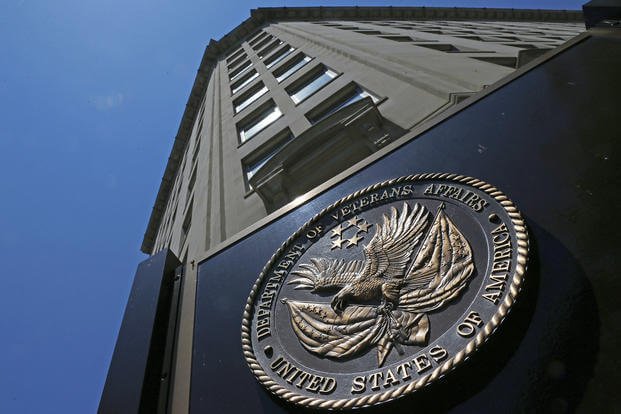The Department of Veterans Affairs would see a slight bump in its overall budget for fiscal 2024 under the plan rolled out Thursday by President Joe Biden, with most of the increase coming from the cost of new benefits extended by the PACT Act.
The White House's $1.7 trillion fiscal 2024 budget proposal calls for $325.1 billion in funding for the VA, the largest request for the department ever, representing a 5% increase from last year's approved budget.
While many of the details of the VA budget will be disclosed in the coming days, White House documents show that the $325.1 billion includes an 8% hike in mandatory spending -- required to pay for salaries, pensions and disability benefits -- largely as a result of needed increases to the department's Cost of War Toxic Exposures Fund. That fund provides benefits for thousands of veterans sickened by environmental pollution overseas or their survivors under the PACT Act.
Read Next: Biggest Military Pay Raise in Decades Proposed by White House
The VA's discretionary spending -- the portion that is adjustable and covers expenses beyond entitlement payments -- would rise by just over 2%, the smallest increase in more than a decade.
According to White House budget documents, the budget "honors our nation's sacred commitment to veterans and military families" by providing health care and services to many of the nation's 16 million veterans.
"With these historic investments, we at VA can continue to deliver more care and more benefits to more Veterans than ever before in our nation's history," VA Secretary Denis McDonough said in a statement released Thursday.
The proposal calls for growth in funding for health care and benefits for veterans now eligible under the PACT Act, requesting $20.3 billion for the fund that pays for such benefits, an increase of more than $15.3 billion from fiscal 2023.
According to VA officials, more than 300,000 claims have been filed under the PACT Act and 161,000 people have enrolled in VA health care and services as a result of the law, which made it easier for veterans who served in the Persian Gulf War, Iraq or Afghanistan, as well as some Vietnam War vets with certain illnesses, to apply for benefits.
Among the priorities spelled out in the VA budget are: suicide prevention and mental health, which would receive $16.6 billion; women's health care, with a $257 million request; veteran homelessness, which would see $3.1 billion to expand voucher programs and permanent housing; and cancer research and care, which would receive more than $300 million as part of Biden's "Moon Shot" to cure cancers.
The proposal also calls for $121 billion for medical care, as well as $3.5 billion in discretionary and mandatory funding to build or expand infrastructure and facilities, and $5 billion for upgrades to medical facilities.
And it asks for $1.6 billion for the VA's electronic health record modernization effort -- a beleaguered program that is currently under intense scrutiny in Congress.
The budget requests $2.4 billion for the department's Caregiver Support Program, which oversees various efforts to help those who care for disabled veterans, including the Program of Comprehensive Assistance for Family Caregivers, up $400 million from last year's request.
The president’s proposed budget could come as a disappointment to some veterans service organizations, which called for a larger increase in discretionary spending for the department in 2024.
Disabled American Veterans, Paralyzed Veterans of America, and the Veterans of Foreign Wars, which craft an annual Independent Budget that spells out the groups’ spending priorities for the department, called for $161 billion in discretionary spending, $23 billion less than Biden’s proposed $137.9 billion.
In the past decade, the VA’s overall budget has more than doubled, from $151 billion in fiscal 2014 to nearly $304 billion in fiscal 2023.
The release of Biden's proposed budget kicks off months of congressional deliberations over funding levels and the effort to develop a federal spending package, with a goal to complete it by Oct. 1.
However, the last time Congress passed all its required appropriations bills before the end of the current fiscal year was 1977.
-- Patricia Kime can be reached at Patricia.Kime@Military.com. Follow her on Twitter @patriciakime.
Related: The VA's Budget Has Quintupled in 20 Years. Veterans Groups Want Billions More












